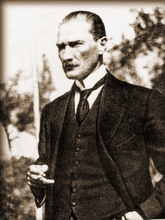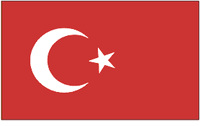Sultan Adülhamit II, in whose honour we had to shout 'Long live our Padishah' several times a day, gradually lost lustre in our eyes. We were indignant at the treatment of young enlightened supporters of freedom in the medical school who were sent into exile and whose careers were ruined. One day we might meet the same fate. As we heard that the government worked badly, that corruption was rife, that civil servants and officers did not receive their pay, while secret policemen and courtiers, covered in gold braid, received not only their pay but purses full of gold, our confidence in the sultan, which was not strong at the best of times, was totally shaken. We saw that delivered into incompetent hands, the army was losing its effectiveness and prestige...But no one dared ask 'Where are we going? Where are you taking the country?' Afraid of the sultan and his secret policemen, people were plunged in abject oriental resignation...There was no freedom in the country. As young students in the War College, we had read in secret and learnt the importance given to human rights and freedoms in the declarations of the French Revolution.Mr. Mango reports that Alex Jevakhoff, Atatürk's French biographer, that the French Revolution and its Declaration of Human Rights "was to be 'the supreme point of reference' throughout his life."
This information was news to me. Fascinating.
At the same, it's not too surprising given Mr. Mango's report in his introduction on page 6: "The Ottoman's connection with the French was old. It went back to the alliance concluded in 1541 between Sultan Süleyman I (Suleiman the Magnificient) and Francis I of France against the Habsburg emperor Charles V."
My appreciation of Mr. Mango's work increases with each page I read. It's expanding my knowledge of an important part of world history. I welcome learning more about Atatürk and, in effect, about modern Turkish history.


No comments:
Post a Comment